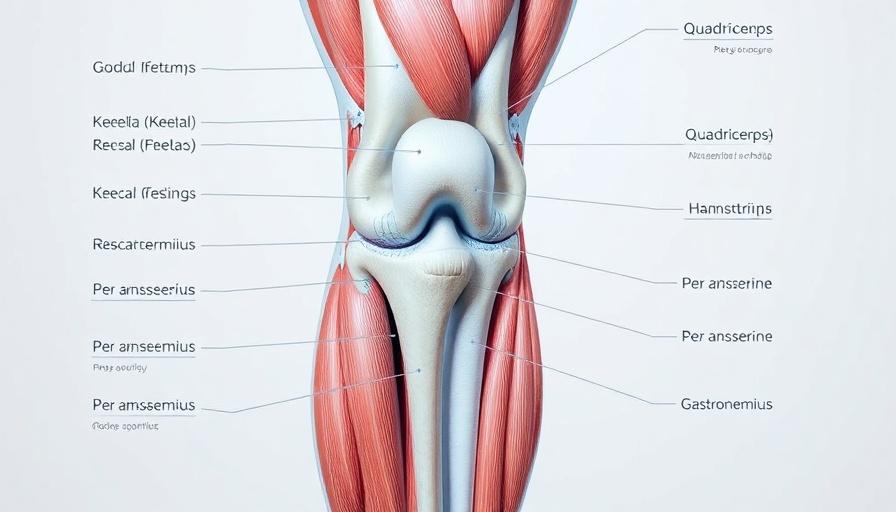
Understanding Your Knee Pain: What You Need to Know
If you're dealing with nagging knee pain, you're not alone. Many active adults experience discomfort that can make everyday activities, like sprinting or bending down, feel daunting. Understanding the causes of your knee pain is essential to managing it effectively. Common reasons for knee pain include joint wear and tear, ligament injuries, and muscle imbalances. These factors can stem from a sedentary lifestyle or overexertion during physical activities.
Why Squatting Isn’t “Bad” for Your Knees
A common misconception is that exercises like squatting can worsen knee pain. However, when done correctly, squats can actually strengthen the muscles surrounding your knees, providing better support. This not only helps alleviate discomfort but also improves overall leg strength. The key is maintaining proper form to avoid unnecessary strain.
Creating a Killer Knee Health Routine
Regular exercises aimed at improving knee health can transform your mobility. Here’s a simplified routine you can start today:
- Stretching: Begin each session with stretches for the quadriceps, hamstrings, and calves.
- Strength Exercises: Integrate exercises such as leg raises, bridges, and squats into your regimen. These build muscle strength without excessive stress on the joints.
- Balance Training: Activities like single-leg stands or using a balance board can enhance your stability, further protecting your knees.
- Low-Impact Aerobics: Opt for cycling, swimming, or walking to maintain cardiovascular health without excessive impact.
Enhancing Your Routine with Complementary Strategies
Your knee health will improve even more when combined with smart lifestyle choices. Consider these tips:
- Nutrition: Nutrient-rich foods can help manage inflammation, which is beneficial for joint health. Incorporate omega-3 fatty acids, fresh fruits, vegetables, and whole grains into your diet.
- Hydration: Staying hydrated is vital. Water lubricates your joints and helps prevent stiffness and pain.
- Rest and Recovery: Always listen to your body. If you experience pain during an exercise, take a break and consider reducing intensity.
Consulting with Professionals
While a self-administered exercise routine is a fantastic start, remember that it's crucial to consult with healthcare professionals, particularly if your knee pain is persistent. A physical therapist can provide tailored advice and exercises to aid recovery based on your specific situation.
Taking the First Step Towards Healthier Knees
Adopting an active, healthy lifestyle doesn't have to involve pushing through pain. With the right knowledge and strategies, you can significantly improve your knee health and overall vitality. Start incorporating these exercises and tips into your routine today, and take charge of your knee health!
 Add Row
Add Row  Add
Add 




Write A Comment